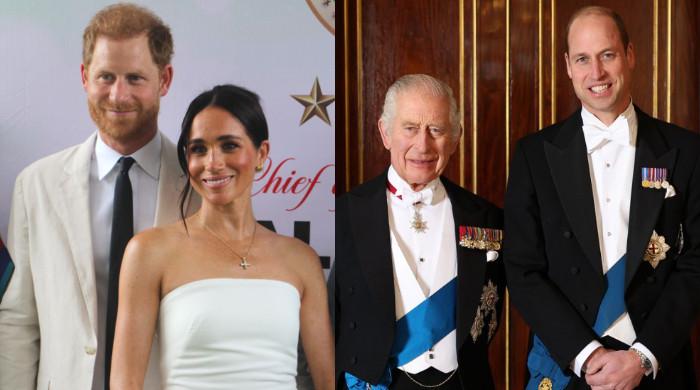Government after government in Pakistan has appeased groups that use religious slogans to divide and frighten Pakistanis.
After a flurry of praise for the police officer who saved his life, most Pakistanis seem to have forgotten the incident in Lahore with the woman accused of blasphemy for wearing a dress with Arabic calligraphy. The fact that a woman was nearly lynched for wearing clothing that an illiterate crowd mistook for a religious text highlights the problem of extremism in Pakistan.
Dismissing events like this incident as outliers or choosing to ignore them will not prevent them from happening again. In December 2021, the manager of a Sri Lankan factory in Sialkot was beaten to death and burned by a mob over blasphemy accusations that turned out to be false. The Lahore woman in the dress with Arabic words was lucky to escape a similar fate.
The dress the woman in question was wearing bore the word 'Halwa' in Arabic script. The word means beautiful in Arabic, and it is not uncommon in the Muslim world for Arabic calligraphy to be used to adorn clothing, buildings, and much more. But the irrational atmosphere in Pakistan surrounding religious issues, especially accusations of blasphemy, put the woman's life at risk. International publicity about the incident ensured that everyone around the world who might be thinking about doing business with Pakistan had to think about facing similar risks.
Nations pay a high price when the rest of the world views them as irrational or extreme. Racist violence, for example, acts as a disincentive for business travelers belonging to different races to travel to countries where race is an issue. In the case of Pakistan, religious extremism and vigilantism have become a factor in the decisions of potential investors and traders.
Two days after the Lahore incident, an Arab businessman told me that he immediately thought of his wife and daughters. “They wear Arabic calligraphy designs as part of their clothing,” he said, adding: “I was thinking of expanding my business to Pakistan, but do I want to walk around Lahore or Karachi with my wife or daughters, risking such attacks?”
Pakistan already has the strictest blasphemy laws in the world and blasphemy is punishable by death after a trial. But some groups do not wait for the law to take its course and want to act as judges, parties and executioners. Several people have been lynched before their cases come to trial and those acquitted due to lack of evidence are also attacked as if the accusation of blasphemy did not require more evidence than the accusation itself.
Judges also have to fear the reaction of those who claim to be omniscient when they hear these cases. Instead of making Pakistani society more religious or pious, the practice of inciting a crowd into a religious frenzy has created situations where mobs lose all fear of God. Even in the recent case of the woman wearing the Arabic calligraphy dress, the crowd had to be appeased with an apology from the woman, even though she had done nothing wrong. As Maulana Tahir Ashrafi pointed out, the men in the crowd, not the women, should have been the ones to apologize.
Government after government in Pakistan has appeased groups that use religious slogans to divide and frighten Pakistanis. Some have even seen extremists as guarantors of Pakistan's security or as instruments of Pakistani influence across the border in Afghanistan or Kashmir. But the net impact of fostering a religious outrage industry has only been to undermine Pakistan's foreign relations and weaken its economy. Official data suggests that between 2001 and 2018 “direct and indirect costs incurred by Pakistan due to terrorist incidents” amounted to $123.13 billion.
Added to this is the cost of fostering a society driven by anger and unable to discover its true place in the modern world. Since falling under Western colonial rule, the Muslim world has developed a narrative of grievance and Pakistan is no exception. Like all national and community narratives, it has some true elements. But the current weakness of the Muslim world or Pakistan is not entirely the fault of Western colonialism or post-colonial machinations.
Pakistanis must understand the consequences of low literacy rates, poor quality of higher education, and low female participation in the workforce. Instead, they are fed narratives of conspiracy theories and hatred against more powerful nations and a steady diet of religious-sounding rhetoric that is more political than religious.
On March 6, 1948, Pakistan's first opposition leader, Huseyn Shaheed Suhrawardy (who later became prime minister for a short time) warned the country's early leaders against building “a state that would be founded about groups and cliques, a state that would be founded on feelings, namely that Islam is in danger or that Pakistan is in danger.
According to Suhrawardy, “a state that will be held together by causing attacks and that you will hold together by maintaining constant friction between you and your brother Dominion. [India], that state will be full of alarms and excursions. You think you will get your way, but in that state there will be no commerce, no business, no commerce.”
Warning against attacks on non-Muslims immediately after partition, Suhrawardy said such a proceeding will only erode the rule of law. “There will be anarchy and those anarchic elements that today can turn against non-Muslims will later, once those fratricidal tendencies have been awakened, turn against the Muslim nobility and I want them to be warned in time,” he observed.
Today, those words seem prophetic. Even now, a comprehensive strategy to roll back extremism is the only way forward for a country facing a multitude of challenges.
The writer, a former Pakistani ambassador to the United States, is a diplomat in residence at the Anwar Gargash Diplomatic Academy in Abu Dhabi and a senior fellow at the Hudson Institute in Washington DC.
Disclaimer: The views expressed in this article are those of the writer and do not necessarily reflect the editorial policy of Geo.tv.
Originally published in The News












